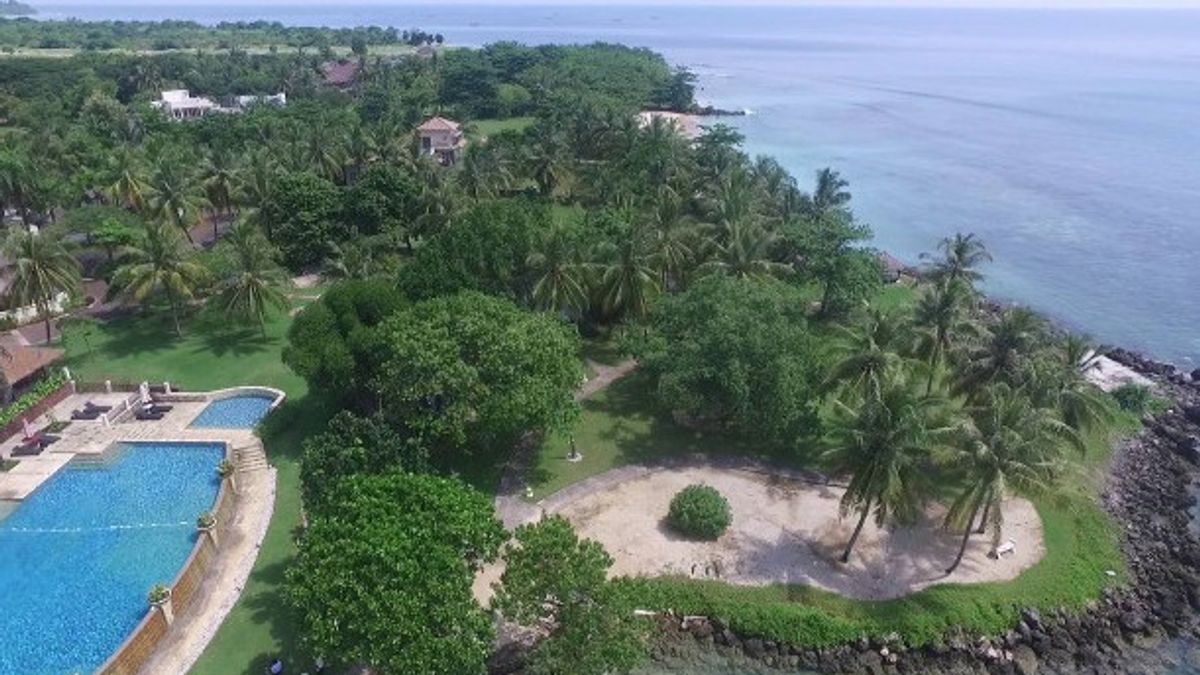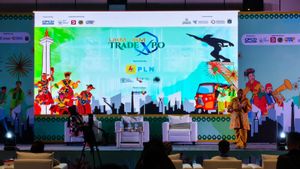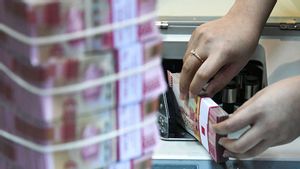JAKARTA - The President of the Republic of Indonesia (RI) Joko Widodo (Jokowi) has approved the designation of three new Special Economic Zones (KEK), through Government Regulation (PP) Number 68 of 2019 which stipulates KEK Singhasari (Malang Regency, East Java), through PP Number 85 of 2019 which establishes the Kendal KEK (Central Java), and PP Number 84 of 2019 which establishes the Likupang KEK (North Minahasa Regency, North Sulawesi).
The copies of the three PPs were officially handed over by the Secretary of the Coordinating Ministry for Economic Affairs Susiwijono to the Regents and Business Entities that propose the three KEKs.
Susiwijono said the development of KEK aims to increase investment, export, import substitution, create jobs, create breakthrough models for regional development through industrial and service development.
"The targets are industries with global competitiveness, international standard tourism services, education and health services, and the digital economy," said Susiwijono in a written statement, Monday, January 6.
#BeritaEkon Three Special Economic Zones (#KEK) have just been established in Singhasari, Likupang and Kendal. The three of them will become the center of international tourism, #creative industry, to support the balance of trade #. Https://t.co/oe66CVS103#UntukEkonomiIndonesia pic.twitter.com/QfyliEOfZC
- Coordinating Ministry for Economic Affairs (@PerekonomiRI) January 6, 2020
Regarding the three new SEZs, the first is KEK Singhasari, which is located in Malang Regency, East Java. KEK Singhasari is prepared as a center for international tourism as well as a center for creative or digital industries.
This SEZ is expected to become the center of digital economy development by cooperating with several multinational technology companies such as Amazon, IBM, Apple, and Google, and will work with several leading universities in the world.
Questioning the investment target and job creation in this KEK, namely the target of foreign exchange contributions of IDR 23.6 billion by 2030, then approximately IDR 135.33 billion of KEK Singhasari's contribution to the Gross Regional Domestic Product (PDRB) of Malang Regency in 2030, and the number of employment as many as 6,863 people when this KEK was optimally operating.
The second is the Likupang SEZ. The SEZ, which is located in North Minahasa Regency, North Sulawesi, was proposed by PT Minahasa Permai Resort Development (MPRD), a subsidiary of the Sintesa Group.
Here will be developed resorts, accommodation, entertainment and MICE. Meanwhile, outside the KEK area, the Wallace Conservation Center and Yacht Marina will also be developed. The targeted workforce that will be absorbed is 65,300 people.
The Likupang SEZ is planned to be developed in three stages. In the first phase, approximately 92.89 hectares will be built over a period of three years, namely 2020 to 2023.
In the first phase of development there will be resorts, commercial areas, lakes, cultural villages, and green open spaces. So, the total investment target is IDR 164 billion for the development of the Likupang SEZ area in the first three years. Meanwhile, the investment target of business actors in the first three years is IDR 750 billion.
The third is the Kendal SEZ. The KEK which is located in Kendal Regency, Central Java is proposed by PT Kawasan Industri Kendal (KIK), which is a joint venture between two industrial developers in Southeast Asia, namely Sembcorp Development Ltd. and PT Jababeka Tbk.
The KEK Kendal will have a land area of 1,000 hectares and is prepared as a SEZ that answers the challenges faced by the Indonesian government regarding Indonesia's export-import balance deficit. Because, the main activity in this KEK is export-oriented and supply chain industries, such as textiles and clothing, furniture, food and beverage, automotive and electronics.
For investment targets and job creation in the first five years of this SEZ, namely 5 billion US dollars for foreign direct investment (FDI) targets, 500 million US dollars for export targets per year, 250 million US dollars for import substitution targets per year, and 20,000 people are projected to be working on it.
For information, to date, the government has established 15 Special Economic Zones (KEK), consisting of nine Industrial SEZs and six Tourism SEZs. Of the 15 SEZs, 11 KEKs have operated or have served investors.
The development of the 15 SEZs has resulted in realized investment of up to Rp. 22.2 trillion, and has also contributed to job creation, because as of the end of 2019, the realization of labor absorption in KEK has reached approximately 8,686 people.
In developing SEZs that are competitive and capable of becoming new growth centers in their regions, support is needed from various parties, including the central government, local governments (pemda), and the communities around the KEK are located. This support must be planned, integrated and implemented in a sustainable manner.
The local government, said Susiwijono, as the biggest beneficiary in the development of KEK is expected to have a strong commitment to support the development of KEK by providing various facilities and facilities for investing in KEK.
"For example, issuing regional regulations (perda) related to reducing regional taxes and levies, or regarding simplifying business permits in SEZs, or concerning regional arrangement (RDTR) around SEZs so that development is harmonious and integrated with the surrounding area, and prevents urban sprawl, as well as with increasing the intensity of coordination in solving development problems and managing SEZs, namely in the formation of the Zone Council, and building regional infrastructure that is connected to the development of KEK, "said Susiwijono.
The English, Chinese, Japanese, Arabic, and French versions are automatically generated by the AI. So there may still be inaccuracies in translating, please always see Indonesian as our main language. (system supported by DigitalSiber.id)








